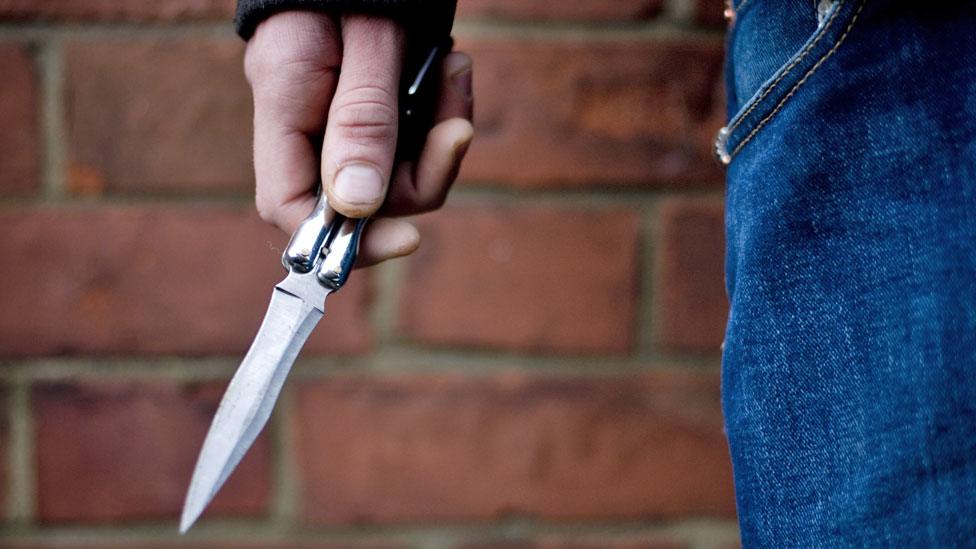Knife possession offences in England and Wales reach record high
- Published
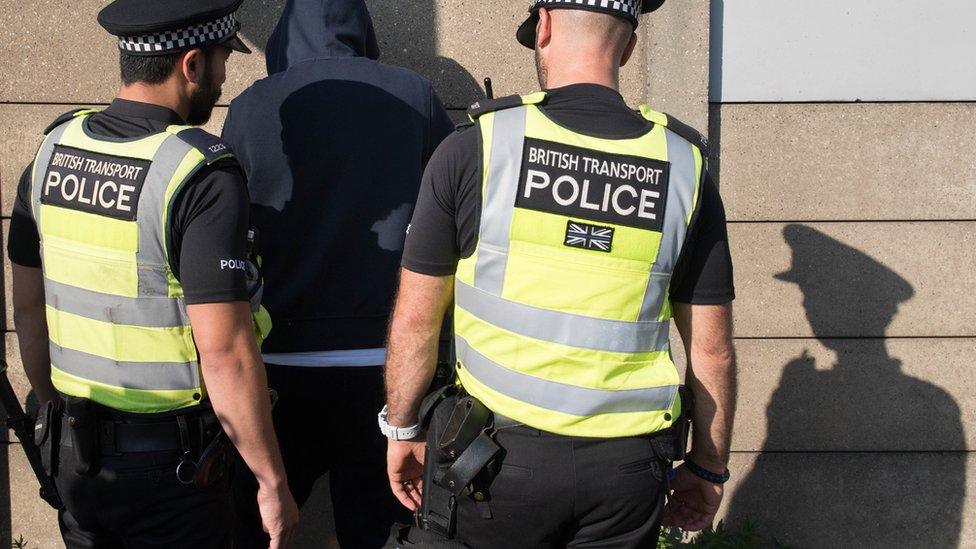
The report calls for a zero-tolerance approach to criminals
The number of people cautioned or convicted for carrying knives in England and Wales has reached record levels, Ministry of Justice data shows.
There were 14,135 offences in the year to September 2019 - the most since the data was first compiled in 2007.
When possession offences involving other weapons were added, the total was almost 22,300 - the most since 2009.
This week it was reported Boris Johnson will lead a new cabinet committee looking at ways to tackle the crime.
It comes after data released by the Office for National Statistics in October revealed police-recorded offences involving a knife or sharp instrument hit a record high in the year to June - up 7% on the previous 12 months to 44,076.
The latest MoJ figures show that for most offenders (71%) this was their first crime of this kind.
According to the report, offenders are now more likely to be handed an immediate jail sentence for knife and weapon offences, and for longer.
In the year to September, 38% of knife and offensive weapon offences resulted in an immediate custodial sentence compared with 23% for the same period in 2009.
The average length of prison sentences also rose over the same period, from six to eight months, the document said.
BBC home affairs correspondent Danny Shaw said the record number of knife possession offences could reflect a greater use of police stop-and-search powers, as well as a rise in the number of people carrying knives.

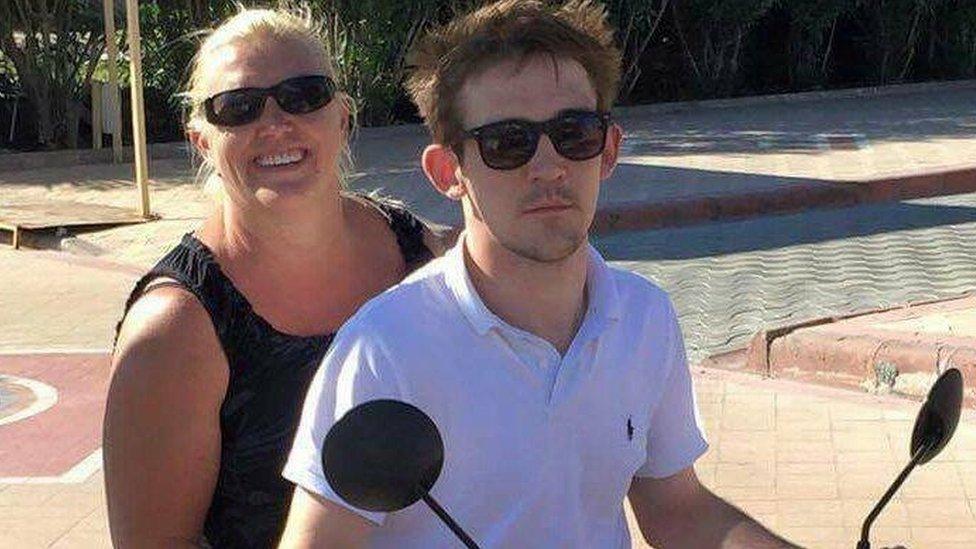
Jonathan, pictured with his mother, Michelle, died after being stabbed on a north London high street in 2017
'Murderers are created'
Jonathan McPhillips, 28, was killed after being stabbed in the chest on a north London high street in 2017.
His mother, Michelle, said he had been trying to protect a teenager he knew who was being attacked by a gang when he was stabbed near Islington Town Hall.
The father-of-two, known as JJ, died in hospital four days later, on 28 February.
Michelle, who now campaigns against knife violence, said tougher sentences - including automatic jail sentences for carrying knives - and more police officers were needed to turn the tide against knife crime.
Young people also need to better understand the wide-reaching consequences of knife attacks, she says.
"They don't understand. It's not just the victim's family that are affected - it's the perpetrator's family, too. They feel guilty that they've given birth to a murderer, but no one gives birth to a murderer - murderers are created in our society."
No one has been convicted over Jonathan's killing.
A case against a man accused of the fatal stabbing was dropped by the Crown Prosecution Service in 2018 after it decided there was not a realistic prospect of conviction.
But Michelle said she would continue to fight for justice for her son.
"I'm not going away. I won't fade into the background."

'Complex causes'
Barnardo's chief executive Javed Khan said: "We need to tackle the root causes and understand why those involved carry knives.
"Increasing the number and length of sentences can only be part of the solution, as this may not deter young people who are suffering a poverty of hope.
"The new government urgently needs to work with charities, education, health, youth workers, the criminal justice system and local communities to find long-term solutions, so vulnerable children have a reason to turn away from crime."
On Wednesday, the Times reported, external that Mr Johnson had ordered all Whitehall departments to take action on tackling crime.
According to the paper, the prime minister told ministers every department should consider itself a criminal justice department as part of a drive to look at the "complex causes of crime", which would involve long-term reforms to improve health, social care, youth services and education.
'Little confidence'
Shadow home secretary Diane Abbott said there was "no evidence" in the data the government's approach to tackling knife crime was having a positive effect.
"Rising knife crime undermines all the Tory claims on law and order. Unfortunately, until they tackle the crises they created through cuts to policing, schools, to mental health and drug services, there can be little confidence of any major improvement," the Labour frontbencher added.
Justice minister Chris Philp said the government was recruiting 20,000 more police officers, replacing those lost over the last decade, was extending stop-and-search powers and ensuring the most violent offenders were kept in prison for longer.
"These figures should serve as a stark warning to those carrying knives - you are more likely to be jailed, and for longer, than at any point in the last decade," he added.
- Published8 January 2020
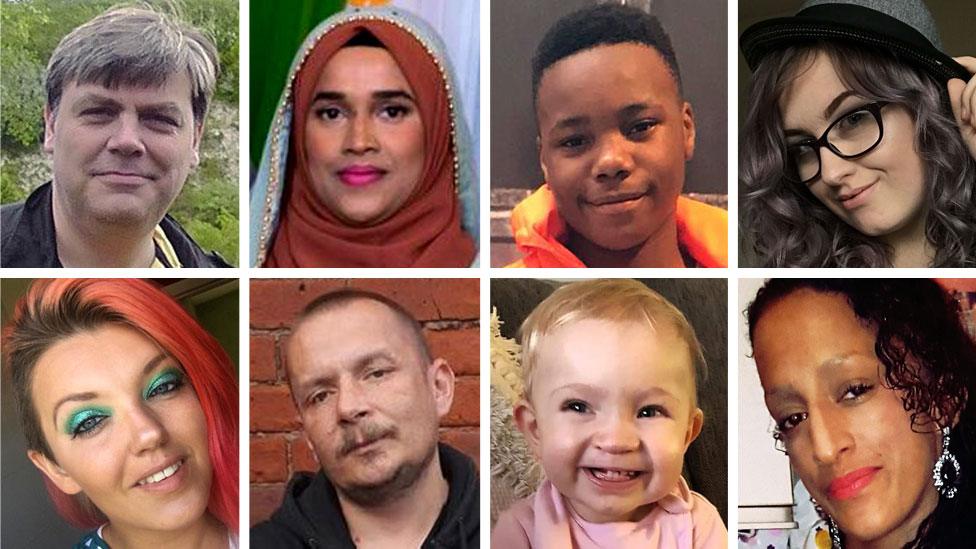
- Published17 October 2019
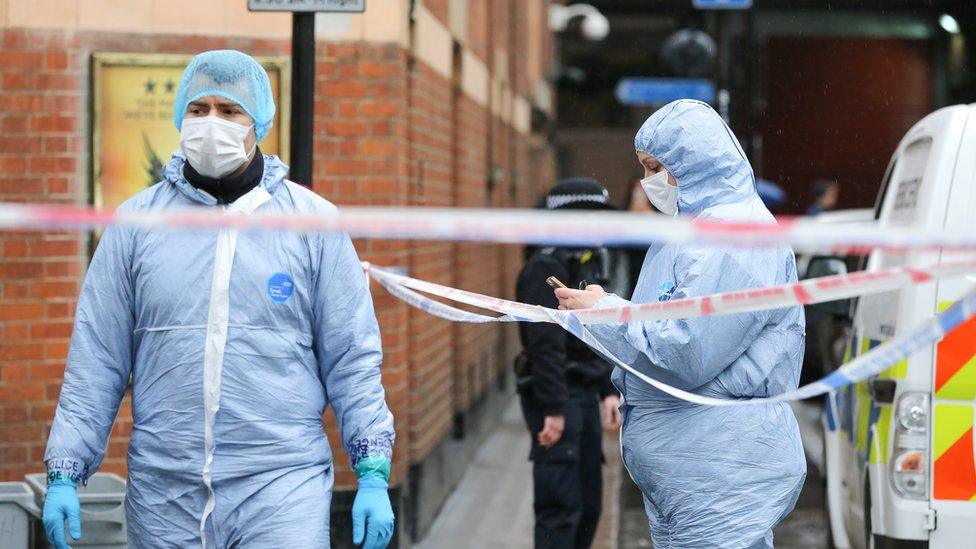
- Published18 July 2019
- Published7 October 2019
